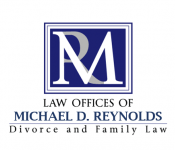Visitations & Guardianships
Staying In Your Child’s Life
Visitation Rights

The law has continually affirmed that a child’s well-being is best preserved when both parents are involved in his or her life. Even in cases of divorce, state law has created measures that ensure a child has regular contact with both parents. This contact is called visitation.
Visitation is a sensitive subject in a divorce proceeding. It is usually the result of one parent having sole physical custody of the child, meaning that the other parent must obey a schedule in order to see their child. To that end, visitation often takes two different forms: “reasonable visitation”
and “fixed visitation”.
“Reasonable visitation” is when the court allows parents to work out a schedule of visitation between them. Courts prefer this method because it allows for parents to be flexible with each other according to their own daily lives. This method requires an amicable relationship between them, as it takes cooperation for reasonable visitation to work. It also takes trust on the part of the noncustodial parent, as the custodial parent has far more power over visitation than the noncustodial parent. However, if a noncustodial parent is being purposefully unfair or malicious with visitation, it can be reported.
“Fixed visitation” is the result of parents who cannot come to an agreement. In this case, the court will determine a schedule that both parents must abide by. This is firm, fixed, and enforceable by the court. In cases of past abuse, the visiting parent can only have “supervised visitation,” where an additional adult is present for the entire visit. This person can be court-appointed or chosen jointly by the parents.
Visitation is a powerful legal agreement, as it can mean the difference between being an absent parent or an involved one. Visitation should be decided according to the best interests of the child, but this may not be the case between parents who do not cooperate. The Law Offices of Michael D. Reynolds can ensure that your visitation agreement will allow your children to have access to both parents, insofar as it is safe and in their interests.
Legal Guardianship
Put simply, a legal guardian is a non-parent who takes care of a child.
This includes providing food, shelter, access to education, and medical care. A legal guardian has all the legal responsibilities of a parent with regard to care and support. What differentiates guardianship from adoption is that a caretaker does not need to terminate a child’s legal relationship to his or her parents in order to be a legal guardian.
While some legal guardians can be state-appointed (i.e. foster care), many legal guardians are already related to the child in their care. Many aunts, uncles, or grandparents will become guardians when parents either cannot or will not take care of their own children. This allows parents to remain in proximity to their children without needing to be responsible for them.
Why Become a Legal Guardian?
Legal guardianship is advantageous for long-term care. For example, hospitals and schools often require limit the caretaking role to biological parents—the only legal exception to this are guardians. Guardianship provides a temporary way of providing the same care and love that a parent may be unable to offer.
At The Law Offices of Michael D. Reynolds, we believe in the role that guardians serve in our society. We advocate for children both through our professional work and through our volunteer work—many of our attorneys are voluntary Guardian Ad Litems, or court-appointed guardians. However, not even GALs can offer the love and stability that a legal guardian can give on a long-term basis from home.
